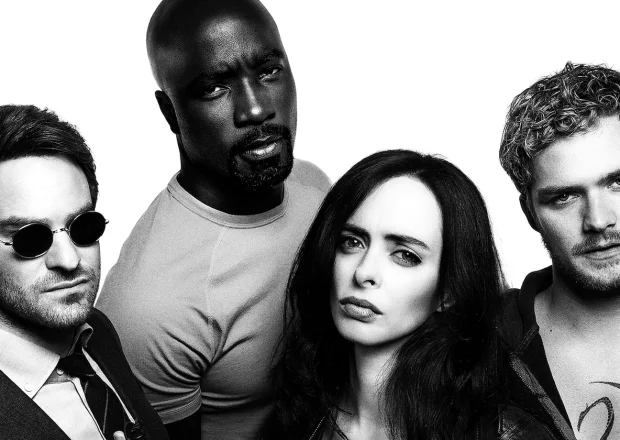A Monster Calls is a Slick Weepy
A Monster Calls hits its viewers with so many emotionally charged story beats: cancer eating away at a lovely and devoted mother; the boy of that mother receiving daily beatings from impossibly cruel older kids at school; his dad is mostly absent but when he's there he doesn't really know what to do or say. And that's all just in the first half of this short film.
So though I teared up a number of times, that isn't to say this movie, rooted in magical realism, successfully cast a spell on me. It feels like a good concept that was never massaged into a narrative that makes use of the full weight of its elements. For all the explicit clues that point to A Monster Calls being about an adolescent coming to terms with truisms that are neither black or white, its sometimes thunderously unsubtle moments feel at odds with that message and undercut what, in theory, should be a quietly poignant conclusion.
It's like someone is talking to the 12 year olds in the front row about Being 12, but also hollering so loudly that the 7 year olds at the back can hear it too. Maybe not the most elegant simile ever, but I swear to you, that's how this ultimately comes off as. It understands the innate power of storytelling and what it can impart to us to help us with our own life – how, in fact, its necessary to weave a narrative of some kind to deal with grief – but it has not much to say on its own. Which is why it feels closer to a good idea than a fleshed out story.
But if I'm wrong, and this truly does connect with a boy or girl who's going through a similar process of unimaginable grief, then what I think doesn't matter because it's not for me. And even though it's not for me, if this – this slick, well produced weepy that I swear was designed in a lab for the sole purpose of yanking human heartstrings – can help that grief-ridden kid through something, then I do love it. For that gets at the heart of why movies matter. And it means a hell of a lot more than some arbitrary rating system or whatever.
So, uh, yeah. A Monster Calls should be easy to parse out. Obviously...
Connor O'Malley (Lewis MacDougall) lives in a small English town with his mother (Felicity Jones), who has cancer. Connor has a recurring dream in which he struggles to hold onto his mother who's precariously dangling on the precipice of some terrible void. He's used to waking up from this nightmare, doing his laundry and making his breakfast, and checking in on his mother before he goes to school. At school he's subjected to torment and torture by a small group of older kids. He comes home to a stern grandmother (Sigourney Weaver, not bad with an English accent) and his sickly mum having an argument about something.
It's a young life suffused with dreariness. Until one evening a giant tree monster, not evil or antagonistic but gentle and wise and voiced with maximum soulfulness by Liam Neeson, visits young Connor and tells him a folk story about a witch and a prince. The story is rendered via painterly, watermarked animation, and it's a thing of eerie beauty. But the ultimate point of the story is that “people are neither good or bad, but in the middle." The Monster says he'll be back two more times to tell a story, but then Connor will have to reveal “his truth” to the Monster.
From then on, it's clear that A Monster Calls is ushering our young protagonist into the next stage of his life: the one without his mother. It ushers him with such precision and calculation from director J.A. Boyana that, in conjunction with the bouts of unsubtle scenes and moments, it drains the poignancy somewhat.
On the other hand, although we never get to know Connor O'Malley that well outside of his grief and artistic ability, A Monster Calls is damn good at honing in on his perspective of the world; heck, like children themselves, it gets to be downright solipsistic at times. More than stunning image quality and composition, the camera movement feels so motivated that certain moments you can see coming from a mile off are truly felt and heart-wrenching. Some great work by cinematographer Oscar Fuala, here.
The performances are good too. MacDougall is obviously a young actor, but he acquits himself well with emotionally demanding material. Sigourney Weaver and Felicity Jones, though not given much to do aside from be in the thick of a difficult, dreadful situation fill out their relatively blank characters with such vitality that you can easily imagine what they're like outside of the confines of this narrative. Toby Kebbell as Connor's sorta deadbeat-but-trying dad also makes the most of his few scenes.
It's a shame that A Monster Calls never ties together its fantasy and its reality; that its blunt epiphanies feel like predetermined arrivals. It's a shame because there's so much to like here, and because it can be effective and affecting in spite of itself.






